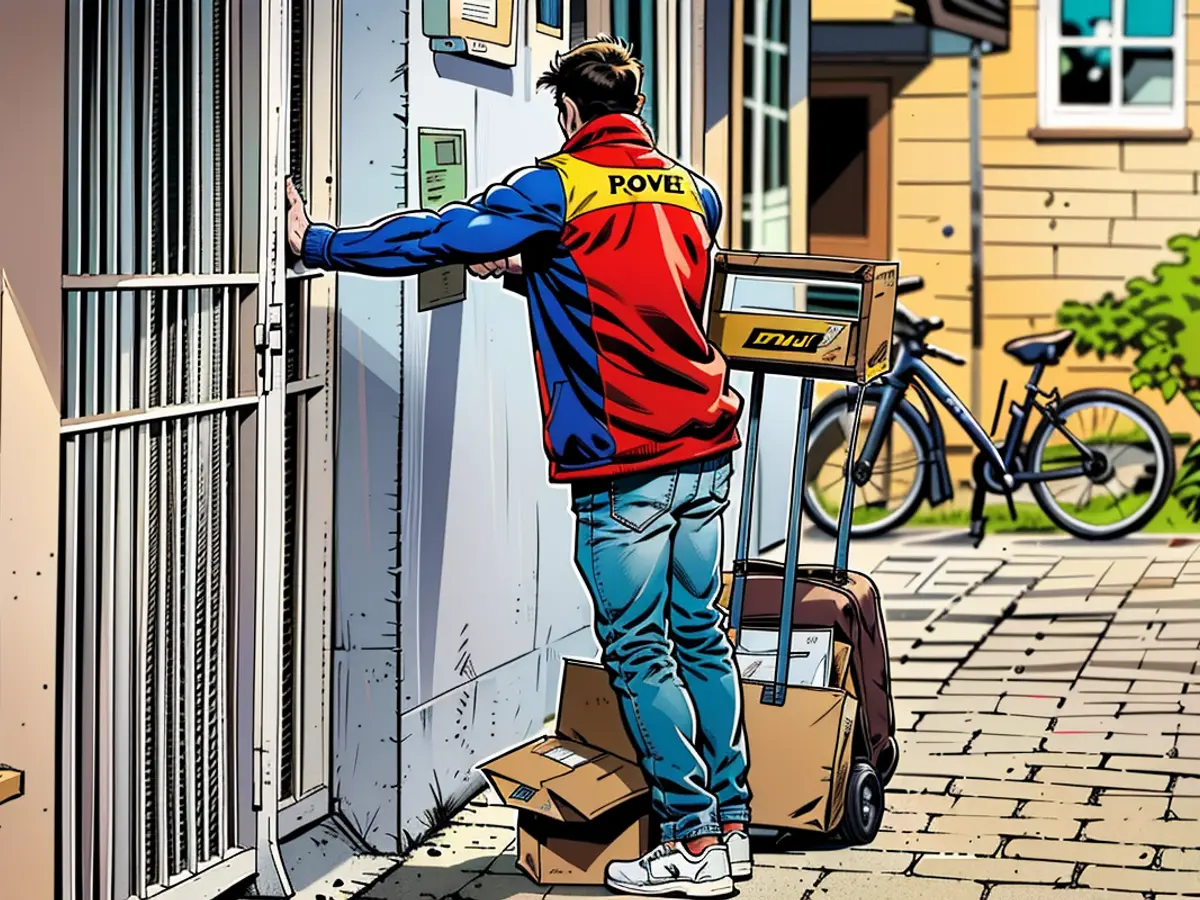Social Democrats and Greens' attempt to ban subcontracting fails.
Mail deliveries may take longer for recipients in the future, as per usual. The controversy revolves around mail carriers often transporting large packages in these instances. SPD and Greens are finding it difficult to enforce change regarding long-term contracts with subcontractors.
The outdated Post Law is being revised. Members of the traffic light coalition in the Bundestag declared in Berlin that they have reached a compromise. The demand from SPD and Greens to ban sub-subcontractors, which involves delegating contracts that have already been assigned to external parties, is no longer an option. Instead, the parties rely on strict control responsibilities.
To ensure this, sub-companies are required to keep records of working hours. Authorities can then compare these data to the data obtained during parcel handovers, allowing violations of the Working Hours Act to be identified. This information was previously reported in "Handelsblatt."
There was also conflict over whether only two packages over 20 kilograms should be delivered at once. The coalition representatives reached a decision that this should be the norm, unless a suitable technical aid is available. Then, single-person delivery would still be allowed. However, clarification on the nature of such aid would need to be determined by the SPD-headed Federal Labor Ministry in a supplementary ordinance within six months. "The main focus of the law is to strengthen labor protection in the parcel sector and take action against crimes related to parcel delivery," said SPD's Sebastian Roloff.
The Post Law has been in effect in its fundamental aspects since 1998. It was last significantly revised when online shopping was still in its infancy and letters played a significant role in individuals' everyday communication. Since then, demands have evolved drastically, with the number of packages increasing exponentially.
Letters will be delivered more slowly
The government's proposal for the post to face less time pressure in the future was largely accepted by the traffic light coalition during negotiations. Currently, it must deliver 80% of letters on the following workday and 95% on the day after. From now on, this performance requirement will only apply on the third day after the mailbox.
This reduced time pressure will help the post save on expenses. Recurring nighttime inland parcel delivery flights by plane have been discontinued recently. These flights were scrutinized in terms of environmental protection. As a result, consumers can expect to receive their letters more slowly on average.
Traffic Light Members: Exhibit our Capacity to Act
The postal services will become more environmentally friendly, according to Greens' Bundestag member Sandra Detzer. "Night flights are a thing of the past, and close to 80% of emissions can be reduced." Reinhard Houben from FDP mentioned that the new Post Law would facilitate competition in the parcel market. "Consumers will benefit from this."
The Post Law showcases the coalition's ability to act, as stated in a joint declaration from the Greens, SPD, and FDP. "The red-green-yellow coalition proves once again: We tackle tough topics and make this country future-proof," noted Detzer.
The legislative proposal is set to be sent to the Economic Committee of the Bundestag on Wednesday and potentially to plenary session by week's end. If the Bundesrat approves in July, the law would pass prior to the summer recess.
Read also:
Despite the Social Democrats and Greens' failed attempt to ban subcontracting in parcel service, they are working on revising the outdated Post Law. DHL and German Post, among others, will now be subject to strict control responsibilities, requiring sub-companies to keep records of working hours and allowing authorities to identify violations.
The traffic light coalition has agreed to lessen the time pressure on the post, which previously had to deliver 80% of letters on the following workday and 95% on the day after. This requirement will now apply only on the third day after the mailbox, allowing for savings in expenses and potentially slower letter delivery on average.








